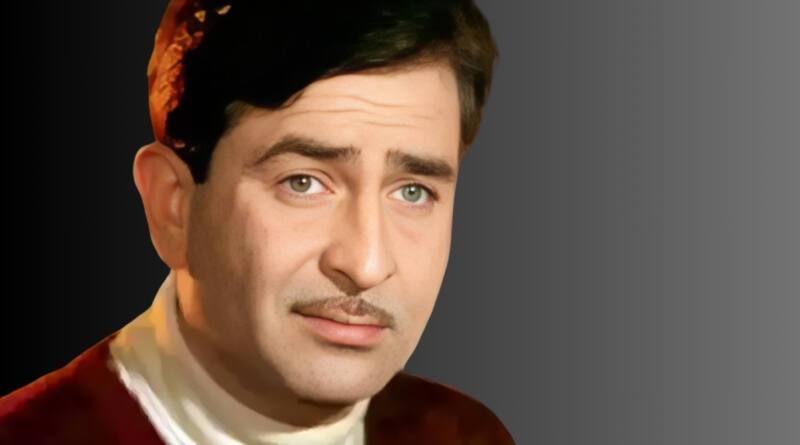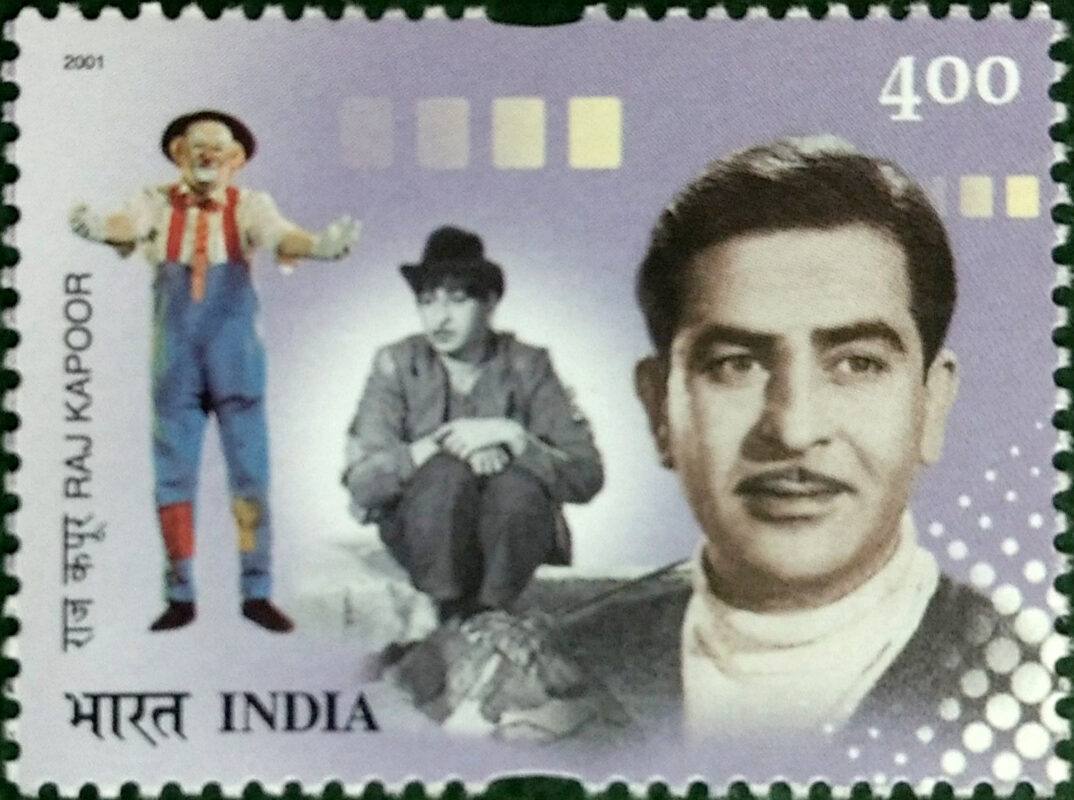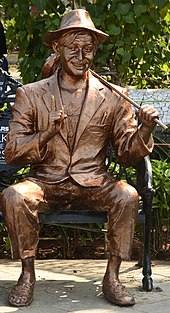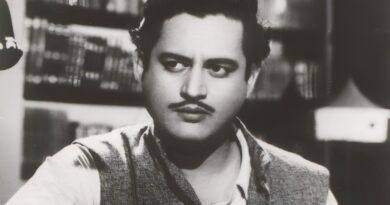Here Is The Greatest Showman Of Indian Cinema
The greatest showman of Indian cinema was not only an exceptional actor and director but also a true legend. His immense contribution and unparalleled legacy can still be felt in Bollywood today and will likely be cherished for generations to come.

Many people consider the 1940s and 1960s to be the golden age of Hindi cinema. It’s no coincidence that Raj Kapoor, a man of immense talent, left an indelible mark on that era through his acting and producing skills. He has directed some of the most iconic Bollywood films and showcased beloved Hindi songs.
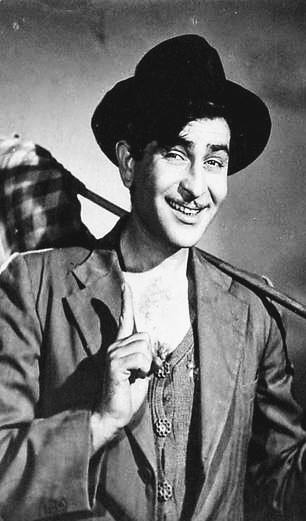
Raj Kapoor is widely recognised as a legendary figure in Indian cinema, earning him the title of The Greatest Showman in the eyes of the Indian media. Experts in film history and avid movie enthusiasts often refer to him as the Indian cinema’s equivalent of Charlie Chaplin. This is because he frequently played a character resembling a tramp who, despite facing challenges, remained optimistic and true to his values.
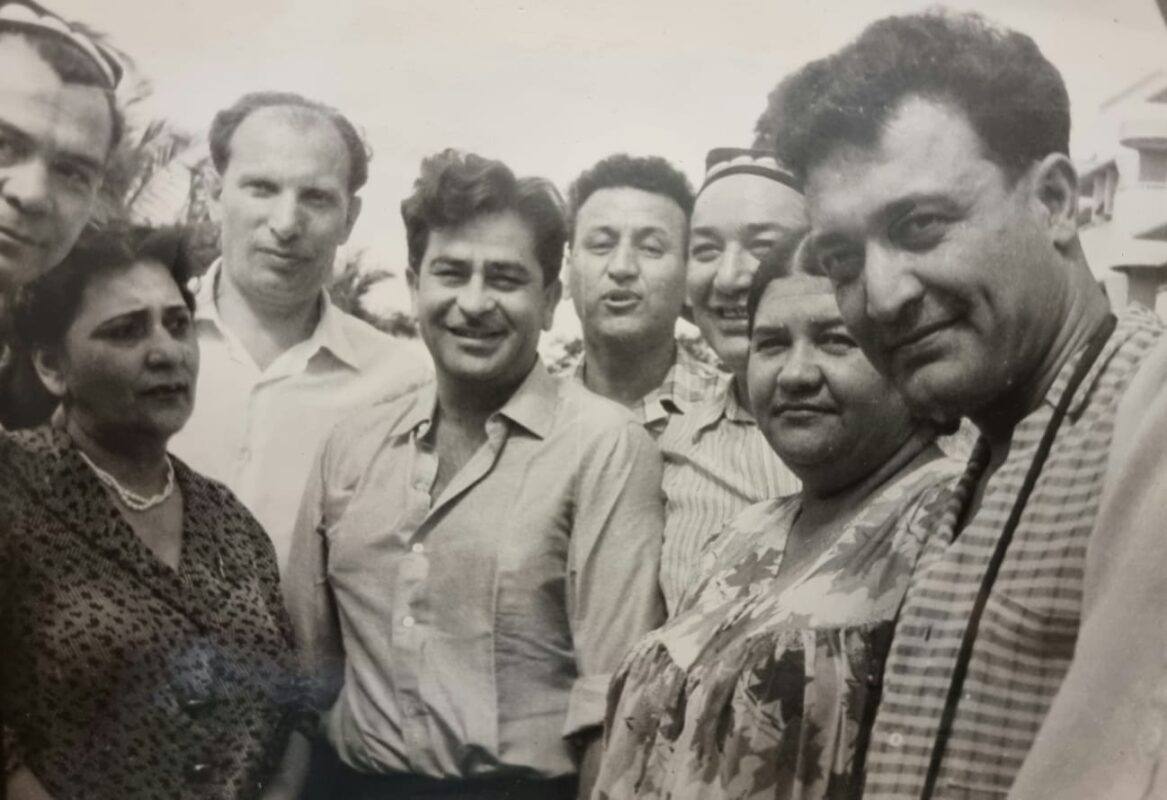
Raj Kapoor’s popularity extends beyond the former Soviet bloc countries, solidifying his place in history due to his notable and sometimes controversial work. Ranbir Raj Kapoor, often hailed as the “greatest showman of Hindi cinema,” may appear as an anomaly to modern moviegoers.
An acclaimed figure in the world of cinema, Kapoor stood out among his peers and gained international recognition, particularly in the former Soviet bloc countries. He challenged conventional industry norms and carved a unique trajectory for himself.
The remarkable journey of the Padma Bhushan awardee.

An Introduction to the World of Hindi Cinema
Known for his striking blue eyes, Raj was considered the favoured member of the Kapoor family. As a young teenager, he made the bold decision to leave his education behind in order to pursue a career as an assistant producer in a studio.


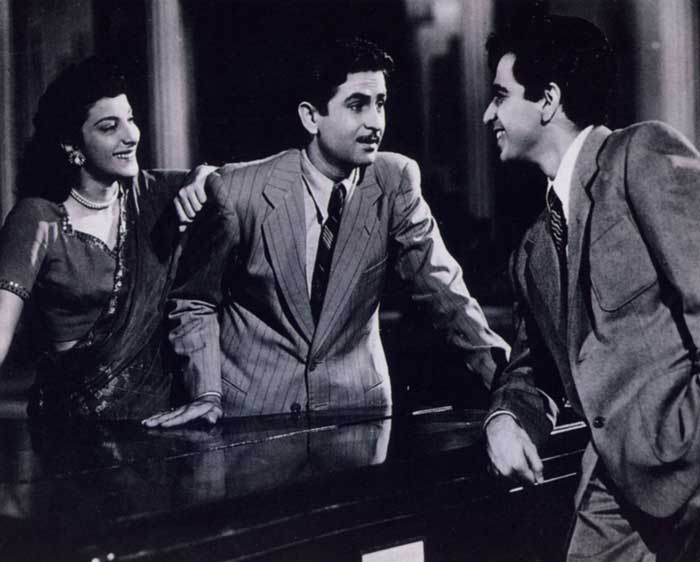


In 1935, Kapoor made his first appearance at the age of 10 in Debaki Bose’s Inquilab. After some time, he became a part of his father’s company, Prithvi Theatre, taking on roles as both an actor and a backstage manager. Kapoor starred in multiple films before achieving success with a prominent role in the 1947 film Neel Kamal, in which he acted alongside Madhubala.
He achieved a remarkable feat by becoming the youngest director of his time and establishing his own production company, R.K. Films, in 1948. By the age of 21, he had already made his directorial debut and showcased his acting skills in his first major film, Aag. His success solidified his reputation as a formidable presence. It also motivated him to create Barsaat, which became one of the most successful films of the decade.
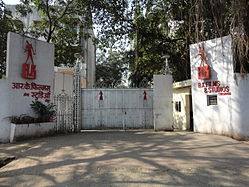
Mehboob Khan’s romantic drama Andaz, starring Dilip Kumar and Nargis, was a massive success at the box office. Following Andaz’s massive success, he went on to direct and produce Barsaat. The film surpassed its predecessor and became a massive blockbuster, breaking the record of the film Kismet, which was previously the highest grossing film of all time.
With the massive triumph of Andaz and Barsaat, Kapoor quickly rose to become one of the top male stars of his era, alongside Dilip Kumar and Dev Anand. The following year, he further established his status as a star by delivering successful performances in Sargam and Dastan, starring alongside Rehana and the renowned actress Suraiya, respectively.
His directorial debut, Awara (1951), a film widely acclaimed for its captivating story and innovative approach to the subject matter, marked the pinnacle of his career. The film became a sensation not only in India but also across the Arab world and the former USSR, thanks to Kapoor’s exceptional performance and its captivating music.
The song ‘Awara Hoon’ continues to resonate in China, Russia, Turkey, and other Asian countries, capturing the hearts of listeners even today. Kapoor’s films were incredibly popular in the USSR, leading to a peak in Hindi cinema’s popularity. Nimai Ghosh’s Chinnamul was the inaugural film to hit the screens, but it was Kapoor’s Chaplinesque performances that truly resonated with the viewers.
Throughout his body of work, Kapoor emerged as a beacon of hope for the audience.
His comical walk and goofy smile brought to life innocent do-gooders and hopelessly romantic characters, whether it was in Shree 420 (1955), Jis Desh Mein Ganga Behti Hai (1960), or any of the other films he directed or acted in. Two of his directorial ventures are considered significant achievements in Hindi cinema. In Mera Naam Joker (1970), Kapoor took a bold approach to storytelling, resulting in a film that spanned over four hours, with two intervals included. In Bobby (1973), which served as a launchpad for his son Rishi Kapoor, Kapoor established a timeless formula for love stories that remains popular to this day.
The Allure of His Films
Some of his other directorial ventures were perceived as a unique blend of progressiveness and commercial appeal, thanks to his portrayal of romance and sensuality. From Vyjayanthimala seducing her husband in Sangam to a saree-clad Mandakini dancing about a waterfall in Ram Teri Ganga Maili, Kapoor fearlessly captured the allure of his female leads. Critics accused him of concealing a hidden agenda behind his ostensibly progressive stance on sex and nudity, implying that his genuine intent was merely to amuse and thrill his audience. Nevertheless, Kapoor’s films, even though they had a clear element of spectacle, always fearlessly portrayed the realities of society.
What Makes Raj Kapoor Such An Iconic Actor In India?
Raj Kapoor is widely regarded as an iconic actor in India due to his immense contributions to the Indian film industry. He had a versatile career in the Hindi film industry, also known as Bollywood, where he excelled as an actor, director, and producer.
Raj Kapoor was an incredibly accomplished actor, starring in a multitude of films throughout his illustrious career. He had a reputation for his effortless portrayal of complex characters, showcasing a natural acting style. He brought forth a range of fresh trends and techniques in Indian cinema, such as the art of close-ups and the fusion of Western-style music and dance into Indian films.
Raj Kapoor’s accomplishments extended beyond his acting career, as he achieved great success as a film producer and director. He established his production company, RK Films, which produced a multitude of highly acclaimed films during that time. He is known for his iconic films such as “Awaara,” “Shree 420,” and “Mera Naam Joker.”
During that era, it was widely believed that everything he laid his hands on would turn to gold. One movie that didn’t fare well at the box office was Mera Naam Joker (1970). This movie held a special place in his heart. However, certain films are ahead of their time. Today, people widely regard it as a timeless film that has garnered immense respect and adoration over the years. Everyone was in awe of what was a genuinely amazing performance.
It is said that Raj Kapoor thought about being a music director before he decided to become an actor. Maybe that’s why Raj Kapoor-directed films are known for featuring some of the most exceptional compositions, lyrics, and Hindi songs. Music directors and singing legends have frequently shared stories about Raj Kapoor’s unwavering dedication to perfecting songs and lyrics. He had a keen eye for selecting singers for his films, too.
He has a collection of popular songs, such as Pyaar Hua Ikraar Hua from Shree420, Ek Din Bik Jayega Mati Ke Mol from Dharam Karam, Ae Bhai Zara Dekh Ke Chalo from Mera Naam Joker, Ramaiya Vastavaiya from Shree420, and Dost Dost Na Raha from Sangam.
Mukesh performed the majority of the songs, while Manna Dey contributed to a few of them. He found Mukesh’s voice incredibly moving, and it became Raj Kapoor’s voice in movies. Discover an exclusive compilation of Raj Kapoor songs on Saregama Carvaan Premium.
One of the standout moments was the spontaneous road songs or cheerful street songs that he brought to the movies. A few examples include the songs “Awara Hoon” from the 1951 film “Awara,” “Mera Joota Hai Japani,” and “Dil ka Haal Sune Dil Wala” from the 1955 film “Shree 420.” These classic tunes became an instant sensation. Everyone adored and sang the songs, transforming the kind-hearted wanderer into a heartthrob.
Personal Life
Raj Kapoor’s birthplace was the grand Kapoor Haveli, a magnificent house in the Qissa Khwani Bazaar neighbourhood of Peshawar, British India. He was born into a prestigious Punjabi Hindu family, specifically the Kapoor clan, who were part of the Dhai Ghar Khatri community. His parents were Ramsarni Devi Kapoor and Prithviraj Kapoor.

The Kapoor family hails from Samundri, a town in the Lyallpur District of Punjab Province, British India. He was the oldest of six children in the family. He came from a prestigious lineage, with notable ancestors including Dewan Basheshwarnath Kapoor, Dewan Keshavmal Kapoor, and Dewan Murli Mal Kapoor. His illustrious heritage placed him firmly within the renowned Kapoor family. He had two brothers, Shammi Kapoor and Shashi Kapoor, who were well-known actors. He had a sister named Urmila Sial, too. Two additional siblings passed away in infancy. The Kapoor family eventually relocated from Peshawar, North-West Frontier Province, to Bombay, Bombay Presidency, for both their residence and education.
He shares a familial connection with actor Trilok Kapoor, who happens to be his father, Prithviraj Kapoor’s younger brother. His father’s sister’s son was actor Subbiraj, making him his first cousin.

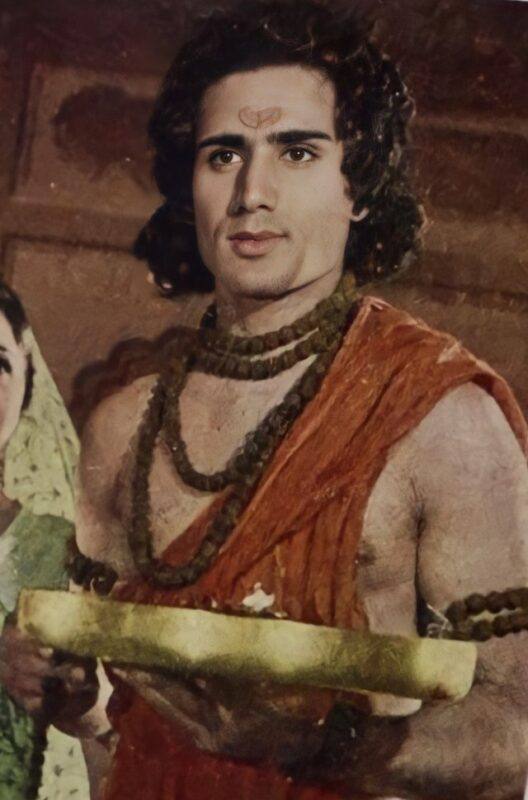
It’s interesting to note that his father’s cousin happens to be Surinder Kapoor, a well-known film producer. Surinder Kapoor’s children have also made a name for themselves in the film industry: Boney Kapoor as a producer, and Anil Kapoor and Sanjay Kapoor as actors.
His father had some talented relatives in the acting industry, including Kamal Kapoor, Ravindra Kapoor, and Nandkishore Kapoor. It is worth mentioning that Kamal Kapoor’s grandson happens to be filmmaker Goldie Behl. There is a fascinating connection within his family. His first maternal cousin, Juggal Kishore Mehra, was a singer. Coincidentally, Juggal Kishore Mehra’s step-granddaughter, Salma Agha, later pursued a career in acting and singing.
As Prithviraj travelled from one city to another in the 1930s, his family also had to relocate. Raj Kapoor has had the opportunity to attend a variety of prestigious schools throughout his academic journey. These include Colonel Brown Cambridge School in Dehradun, St. Xavier’s Collegiate School in Calcutta, and Campion School in Bombay.

On May 12, 1946, Raj Kapoor and Krishna Malhotra tied the knot. Krishna was one of nine siblings, and after getting married, several of them pursued careers in the Hindi film industry. Her brothers, Rajendra Nath, Prem Nath, and Narendra Nath, went on to pursue acting careers, while her sister Uma is married to actor Prem Chopra.
Raj and Krishna Kapoor had a beautiful family of five children. Among their children were three talented sons, namely Randhir Kapoor, Rishi Kapoor, and Rajiv Kapoor. They were blessed with two beautiful daughters, Ritu Nanda and Rima Jain. Randhir is happily married to former actress Babita, and he is the proud father of actresses Karisma Kapoor and Kareena Kapoor. Rishi Kapoor’s widow is the well-known actress Neetu Singh, and they have two children together: a daughter named Riddhima Kapoor and a son who is also an actor, Ranbir Kapoor.
Industrialist Rajan Nanda, a prominent family associated with the Escorts group, married Raj Kapoor’s eldest daughter, Ritu Nanda. They have two children: a daughter named Nitasha Nanda and a son named Nikhil Nanda. Nikhil is married to Shweta, the daughter of renowned actors Amitabh Bachchan and Jaya Bachchan. Raj Kapoor’s younger daughter, Rima Jain, is married to investment banker Manoj Jain and has two sons, Armaan Jain and Aadar Jain.
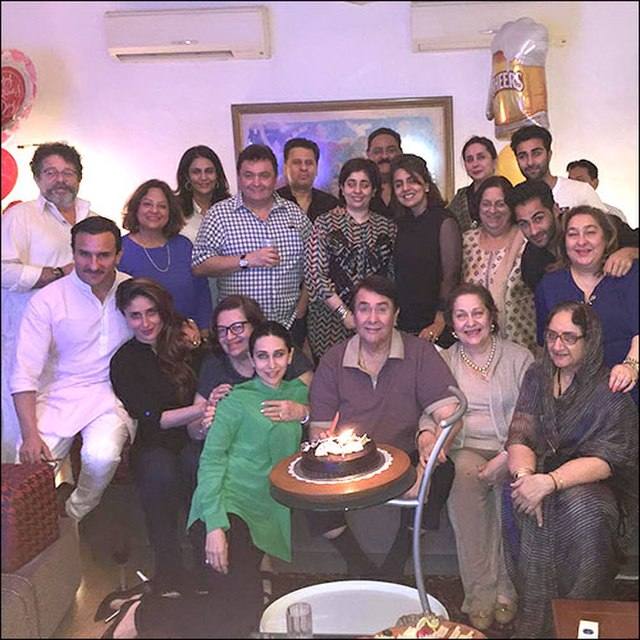
All members of Kapoor’s immediate and extended family have found success in the Hindi film industry. His granddaughters Karisma Kapoor and Kareena Kapoor, along with his grandson Ranbir Kapoor, have become prominent figures in the Bollywood industry. Another grandson, Nikhil Nanda, has made a name for himself as a successful industrialist. In 2023, Agastya Nanda, the son of Nikhil, made his acting debut with The Archies.
Kapoor maintained a discreet romantic relationship with the esteemed actress Nargis Dutt throughout the 1940s and 1950s, despite his marital status. However, neither of them ever acknowledged this connection in the public eye. The couple appeared in several films together, such as Awaara and Shree 420. After the completion of Chori Chori, Nargis made the decision to end her relationship with Raj, as she chose to prioritise her commitment to her husband and children. She then went on to marry Sunil Dutt, whom she had developed a deep affection for while working together on the set of Mother India (1957). In 2017, Rishi, his second son, revealed his father’s affair in his autobiography, Khullam Khulla.
On October 1, 2018, Krishna Raj Kapoor passed away. Rajan Nanda, the spouse of Ritu Nanda, passed away on August 5, 2018. In January 2020, Ritu Nanda passed away. In April 2020, Rishi, Kapoor’s second son, tragically passed away, three months after his sister. In February 2021, Rajiv, Kapoor’s third and youngest son, passed away.
He developed romantic relationships with several of his co-stars, including Padmini and Vyjayanthimala, throughout his lengthy career. He has also given rise to a prestigious film dynasty in Mumbai, with stars spanning multiple generations, the most recent addition being Ranbir Kapoor. The Kapoor family is widely recognised as the epitome of Bollywood royalty. Throughout the 1980s and beyond, Kapoor experienced the challenges of asthma, which unfortunately became more severe as he grew older.
He has an impressive collection of awards, including 11 Filmfare Awards, 3 National Awards, and being a two-time nominee for the Palme d’Or grand prize at the Cannes Film Festival. Additionally, in 1971 he received the Padma Bhushan, and in 1987 he received the Dadasaheb Phalke Award.
He unexpectedly collapsed on stage during the 1987 ceremony, where he was receiving India’s highest film award, the Dadasaheb Phalke Award, and required immediate hospitalisation. His passing occurred on June 2, 1988. His enduring legacy, filled with both acclaim and controversy, continues to captivate.
Raj Kapoor’s contributions to the Indian film industry have had a long-lasting impact on Indian cinema. His extraordinary talent, creativity, and unwavering commitment to his art continue to make him highly esteemed as one of the most exceptional actors and filmmakers in Indian history. He has had a greater influence on Bollywood films than anyone else, and his legacy will endure for years to come.

